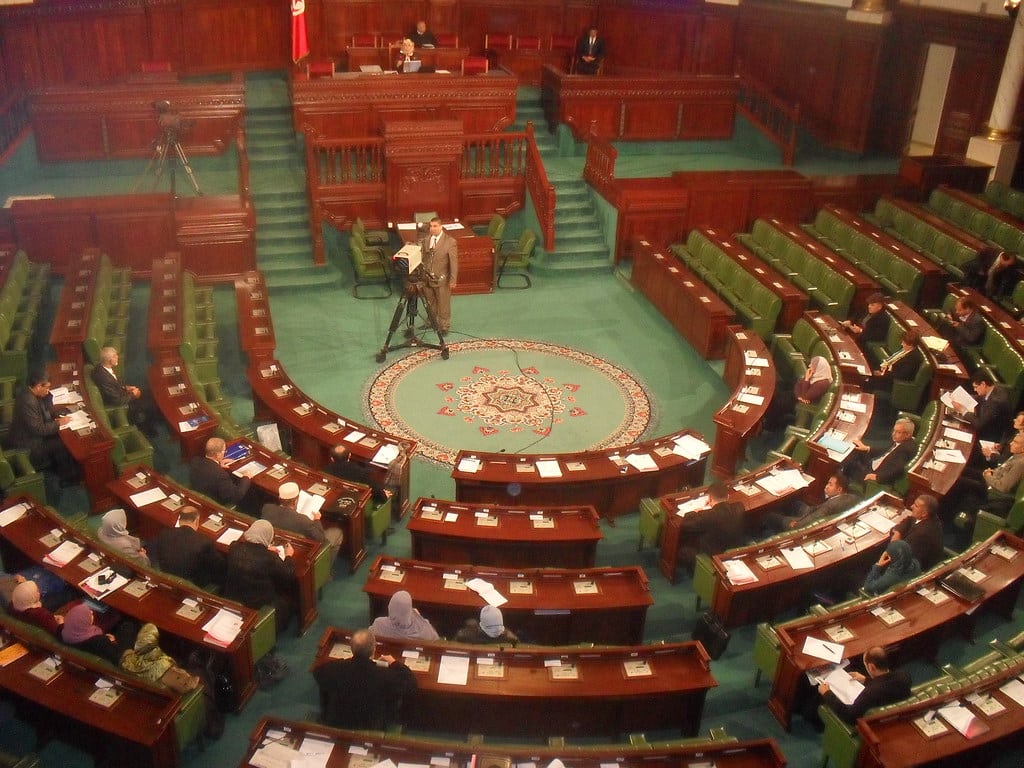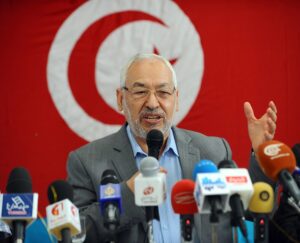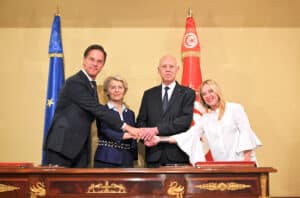Only six months after forming the new government, Tunisia is facing yet another political crisis. The incumbent prime minister Elyes Fakhfakh is accused of conflict of interest; parliamentary parties launched a vote of no confidence in parliamentary speaker Rached Ghannouchi, while members of his moderate Islamist Ennahda party have called for a new government.
Accusations against prime minister Elyes Fakhfakh
Namely, documents published by the independent member of parliament indicate that companies with Fakhfakh’s shares won government contracts. The state deals with companies are worth 44 million dinars (13.683.409 EUR). Fakhfakh denied all accusations of corruption and claimed that he sold the shares before becoming the PM. The head of the state anti-corruption commission, Chawki Tabib, said he had no previous knowledge on this matter and that companies’ contracts with the state should be cancelled.
Ennahda calls for a new government
In addressing the parliament, Fakhfakh rejected the accusations again and stated he is willing to resign only if any violation was proved. However, opposition parties, namely Qalb Tounes, are keen on demanding the resignation which can destabilise already fragile governing coalition. The coalition has previously been troubled by disputes among parties coming from across the political spectrum and having opposing standpoints on economic reforms and social priorities. Ennahda, the party in the coalition with the most seats in parliament, stated on Sunday the 12th of July that a new government should be formed since the current one lost credibility. Abdelkarim Harouni, chairman of the Shura Council of the Ennahda movement, called for consultations with the president of the Republic Kaïs Saïed, political parties and national organisations to decide on a new government formation, highlighting the vital role of the president in overcoming the current political crisis. However, after the meeting with Fakhfakh and Secretary-General of the Tunisian General Labour Union (UGTT), Noureddine Taboubi, president Saïed clearly stated his position. “Talking about consultations on the line-up of a new government is slander and is intended to mislead public opinion. I will not accept any consultations with anyone as long as the current Prime Minister holds full powers and his legal position remains unchanged,” he warned.
Cabinet reshuffle
In reaction to the official statements issued by the Ennahda movement, Fakhfakh decided to make a cabinet reshuffle, which can put Ennahda out of power for the first time in six years. He specified that this decision comes up against parallel attempts by Ennahda movement to introduce considerable changes in the government, without taking into account consequences on state institutions and the national economy, already weakened by COVID-19 pandemic and previous crisis.
Motion to withdraw confidence from parliamentary speaker Rached Ghannouchi
Tunisian parliamentary parties launched a petition for withdrawing confidence from Rached Ghannouchi, the leader of the Ennahda and parliament speaker Rached Ghannouchi. The no-confidence motion poses substantial challenge to Ennahda and puts at risks their plan on forming a new government.
The parties involved are Tahya Tounes, Attayar, Chaab and Reform parties, The Free Constitutional party. The reasons for a no-confidence motion includes numerous violations, poor management, unilateral decisions and partisan interests. The motion already exceeded 73 signatures needed for it to be put to a public vote. Mentioned parties have 90 members and the minimum number of votes for the motion to succeed are 109.
Sources: Reuters, TAP, MEO, Aljazeera, Al-Arabiya
Photo: Flickr



